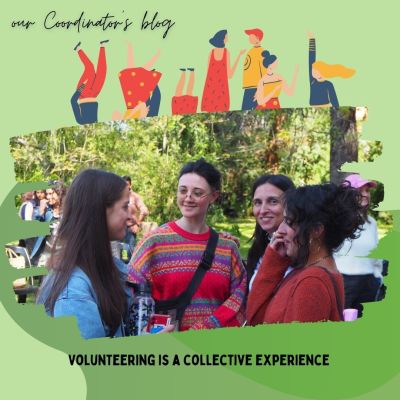The memory march in Buenos Aires started from the National Congress and proceeded down Avenida de Mayo towards Plaza de Mayo.
As demonstrators closed in on Plaza de Mayo, traffic was detoured and the centre of Buenos Aires became gridlocked. The people continued to grow in numbers and eventually spilled into the side streets in Buenos Aires, blocking pedestrians and bikes from getting in between them. Each group carried large banners with various political statements to show their unity towards the importance of the memory day. The groups were led by people projecting their voices through giant megaphones and were accompanied by musical bands, which played in tune them.
There was a massive stage set up in the middle of Plaza de Mayo where people listened attentively to the numerous speakers. A common theme reiterated in the speeches was that Argentinians mutually agree the national memory day is not a public holiday meant for celebration, but a time for remembrance of those who suffered or lost their lives during the dictatorship and are continuing the fight for justice.
On March 24th, 1976 the military overthrew the former president, Isabel Peron (wife of late president Juan Peron) and carried out some of the worst human rights crimes recorded in Argentina. During the dictatorship, which lasted 1976 to 1983, at least 30,000 citizens were kidnapped, tortured and killed under their power, led by General Jorge Rafael Videla.
The state terrorism and violence wasaimed at left-wing guerrillas, political groups and socialists. Two of the most well known human rights organization in Argentina, which were both established as a counter effect of the ‘Dirty War,’ were present amongst the crowds at the demonstration.
Las Madres de Plaza de Mayo (Mothers of Plaza de Mayo) are made up of the mothers whose children went missing under the dictatorship. Since 1977 they have been protesting every Thursday at 3:30 pm in Plaza de Mayo as a commitment in the search for those who disappeared during the coup. As a poignant gesture, they wear white headscarves, which is meant to symbolize diapers of the missing children.
Founded in 1977, Las Abuelas de Plaza de Mayo (the grandmothers of Plaza de Mayo) was created with the goal of finding the children who were stolen and illegally adopted with the hopes to return them to their biological families. An example of this tragedy is that some mothers had their children in prison cells and then they ‘disappeared’ under the dictatorship without a trace. Las Abuelashave worked with genetic testing and, as of today, they have located 128 grandchildren out of the approximate 500 that went missing.
Joaquin (volunteer coordinator) and Francisco (communications coordinator) accompanied some of Voluntario Global’s volunteers to the march and later asked them what is their understanding of social memory from their experiences in their own countries. Here are some of their responses.
“Memory for me must be tied with history and raise some awareness of things that happened in the past,” said Laura (pictured right) from Germany.She has joined Voluntario Global this week in the communications team and is looking forward to getting to know Buenos Aires and the different projects around the city.
Oliver (pictured left) is from Denmark and has been volunteering in the English college over the last month. He said, “I think (memory) has to do with culture. It's important to remember all the history of the country and to show solidarity together as a nation as they do here in Argentina."
Johanna (pictured centre) has recently returned back to Buenos Aires from Norway. She was a volunteer with Voluntario Global last and has come back because she fell in love with the city and wanted to spend some more time in Latin American. Johanna said, “Memory is something that happened a long time ago but it's very important to remember and not forget it in the present day."
The importance of the march could be felt amongst the protesters as they united to remember a day that they never want to relive or, furthermore, let happen again in their country. The power in numbers can be underestimated, however, after witnessing the memory day, I can vow that Argentinians certainly know how to come together to fights for their rights and show their support for a better future in their country.





